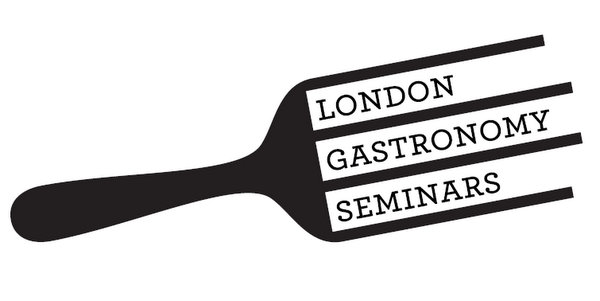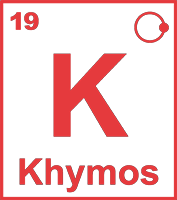
In New York the Experimental Cuisine Collective has been arranging regular seminars since 2007, in Paris Hervé This’ monthly seminar has been running for many years – and now finally the London Gastronomy Seminars are about to launch. To their upcoming event on November 30th they have invited Hervé This, Tony Conigliaro and John Forbes to speak about on Flavor extraction. You might remember that I’ve blogged about the wonders of extraction here previously (focusing on water, ethanol, oil and more specifically on espresso and walnut liqueur) – it’s a really fascinating topic and I wish I could take part in the seminar! If you’re in London or live nearby I would strongly recommend you to visit the seminar 🙂

I have booked & will report back!
Hervé This remains a mystery for me: I thought his first book was a ripoff of Harold McGee’s masterpiece, his first book published in English was really bland and asked questions without providing any answers. On the other hand his blog and articles are pretty good. So I’m looking forward to forming a more direct opinion… and learning something!
I booked my ticket and went along.
Well, he’s just like is in his books. Very funny and makes learning fun and very interesting.
He had planned to give a presentation on Flavour Extraction but when he start told us that instead wanted to give one on Note by Note cooking. Something very new. He told us that Pierre Gagnaire made the first dish using the new technique very recently, and it was something quite amazing. I will try and get a picture to post.
So, after him telling us that we where all ready to find out more about this new style of cooking. Only then to have his publisher stand up at the back of the room and ask him to rap up the presentation as they had to leave to go somewhere else. He talked for about 20 minutes which was such a shame. They did record this session so I’m going to be asking them today if they plan to have it on there website. I will be also asking for the any notes from him that might shed anymore light on this Note by Note cooking. I will be posting any info i get here.
Does anyone know about this new technique and have any links to on the subject?
Reporting back…
Hi James. Was there too. Such a shame. The evening had three presenters: one was sloppy, the other broke his foot and could not attend and the third actually did an excellent job. More below:
– Hervé This was hurried, sloppy, did not prepare a jot, had 200 slides in French from his standard “hey look, aren’t I great?” pack and did not make the slightest effort to address the subject. He was clearly there “en passant”, on his way to something more remunerative and interesting. What is frustrating is that he is very engaging and knows a lot of stuff and it feels even more of a let-down. His only objective was to promote his books (I have read two of them, they are basically useless compared to Harold McGee’s). As I said above the web site he shares with Pierre Gagnaire (another fount of modesty) is actually very good. Have a look here:
http://www.pierre-gagnaire.com/francais/cdthis.htm
(in French, happy to translate some entries if needed)
His intervention on Note by Note Cooking was actually interesting: we now have the means of composing food not from ingredients (meats, vegetables) which are already complex compounds, but from individual taste ‘Notes’ such as glucose, foams, flavours, etc. This was given the whole of 3 minutes so it is hard to get a precise idea of what this can achieve. To find out more:
http://www.tinyurl.com/notebynote
(also in French, and the recipes are not really Note by Note)
– But enough about him… John Forbes gave a very interesting presentation on the extraction of natural flavours (essential oils) from fruit and vegetables. We covered industrial techniques, yields (typically 0.3% by weight), issues of predictability and quality control and so on.
The question in the back of my mind was: “why is there a business in natural flavours when industry can find much more stable – and cheaper – compounds from the chemicals industry?” The answer is that ‘natural’ does smell/taste better because (as shown through spectrography), a flavour is made up of 1-5 dominant compounds (at say 40 parts per million) and a long tail of minor ones. It is the tail that gives the distinctiveness and is hard/expensive to reproduce chemically.
We sampled half-a dozen fragrances/flavours some quite surprising (e.g. orange juice as opposed to orange peel or skin). Applications are quite interesting too: for example Florida orange juice manufacturers produce year round but have to use very different varieties of fruit depending on the time of the year. Skilful blending of natural flavours allows to keep the taste constant year-round.
– Tony Conigliaro unfortunately could not join us having broken his ankle the day before but sent across a bottle of horseradish-distilled vodka for sampling. He uses a rotovapor for this one. The result was excellent: the clean taste of horseradish (with appropriate kick) and the warmth of vodka. Not sure I would make this my tipple of choice but it was interesting as ‘shot’.
SO
All in all an excellent idea and a good start to the series. Forget the disappointment about Mr This: he did the job of putting the seminars on the map – To quote Arnie, I’ll be back…
I was there too – i agree with the comments above, but would like to reiterate Moscools conclusion – “All in all an excellent idea and a good start to the series”, am looking forward to the next one!
Thanks Moscool for that.
I had a look on the links and your right there really isn’t much about Note by Note. Nor does Google seem to find much i think it had 55 pages when typed in.
I think this is just something to new and i will have to wait alittle until there is more written on the subject.
Very, very disappointing. I caught glimpses of what looked like interesting yet poorly constructed slides, but nothing was up there for more than a second unless of course it belonged to the myriad collection of slides plugging the gastronomy courses and workshops that the room full of potential consumers may like to attend. Nowhere near enough science. Having said that, I will obviously make the pilgrimage to the next one, it can’t be any worse.
Thank you for the reports! Too bad Hervé had to leave so early and that he hadn’t prepared a proper presentation for the meeting. I have heard him lecture on several occasions and he is indeed very knowledgeable, but time constraints are not a good thing for him 🙂